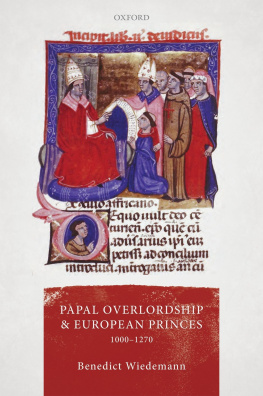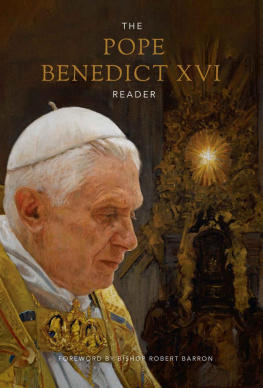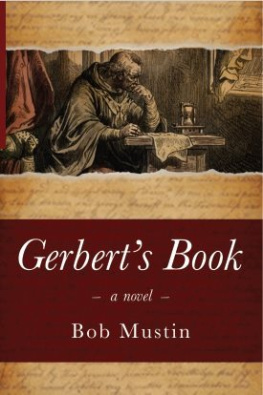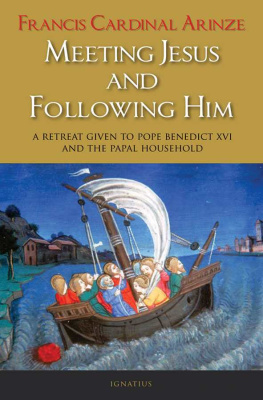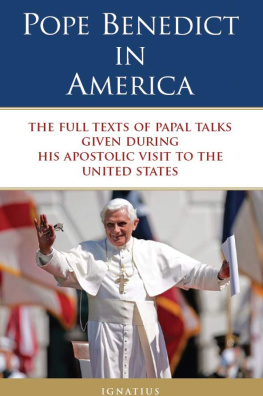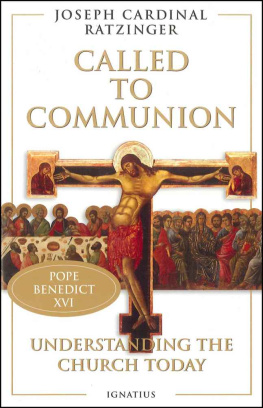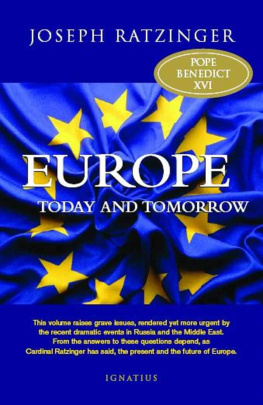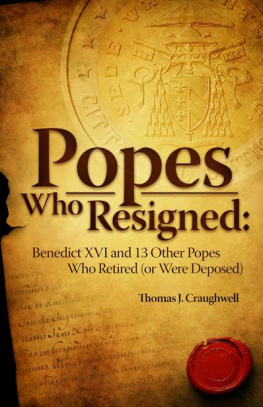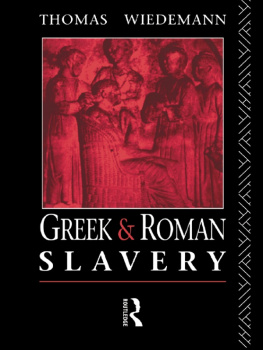Benedict Wiedemann - Papal Overlordship and European Princes, 1000-1270
Here you can read online Benedict Wiedemann - Papal Overlordship and European Princes, 1000-1270 full text of the book (entire story) in english for free. Download pdf and epub, get meaning, cover and reviews about this ebook. year: 2021, publisher: OxfordUP, genre: Religion. Description of the work, (preface) as well as reviews are available. Best literature library LitArk.com created for fans of good reading and offers a wide selection of genres:
Romance novel
Science fiction
Adventure
Detective
Science
History
Home and family
Prose
Art
Politics
Computer
Non-fiction
Religion
Business
Children
Humor
Choose a favorite category and find really read worthwhile books. Enjoy immersion in the world of imagination, feel the emotions of the characters or learn something new for yourself, make an fascinating discovery.
- Book:Papal Overlordship and European Princes, 1000-1270
- Author:
- Publisher:OxfordUP
- Genre:
- Year:2021
- Rating:5 / 5
- Favourites:Add to favourites
- Your mark:
- 100
- 1
- 2
- 3
- 4
- 5
Papal Overlordship and European Princes, 1000-1270: summary, description and annotation
We offer to read an annotation, description, summary or preface (depends on what the author of the book "Papal Overlordship and European Princes, 1000-1270" wrote himself). If you haven't found the necessary information about the book — write in the comments, we will try to find it.
Papal Overlordship and European Princes, 1000-1270 — read online for free the complete book (whole text) full work
Below is the text of the book, divided by pages. System saving the place of the last page read, allows you to conveniently read the book "Papal Overlordship and European Princes, 1000-1270" online for free, without having to search again every time where you left off. Put a bookmark, and you can go to the page where you finished reading at any time.
Font size:
Interval:
Bookmark:

General Editors
caroline goodsonamy remensnyder
john watts

Great Clarendon Street, Oxford, OX2 6DP, United Kingdom
Oxford University Press is a department of the University of Oxford. It furthers the Universitys objective of excellence in research, scholarship, and education by publishing worldwide. Oxford is a registered trade mark of Oxford University Press in the UK and in certain other countries
Benedict Wiedemann 2022
The moral rights of the author have been asserted
First Edition published in 2022
Impression: 1
All rights reserved. No part of this publication may be reproduced, stored in a retrieval system, or transmitted, in any form or by any means, without the prior permission in writing of Oxford University Press, or as expressly permitted by law, by licence or under terms agreed with the appropriate reprographics rights organization. Enquiries concerning reproduction outside the scope of the above should be sent to the Rights Department, Oxford University Press, at the address above
You must not circulate this work in any other form and you must impose this same condition on any acquirer
Published in the United States of America by Oxford University Press
198 Madison Avenue, New York, NY 10016, United States of America
British Library Cataloguing in Publication Data
Data available
Library of Congress Control Number: 021945146
ISBN 9780192855039
ebook ISBN 9780192667083
DOI: 10.1093/oso/9780192855039.001.0001
Printed and bound by CPI Group (UK) Ltd, Croydon, CR0 4YY
Links to third party websites are provided by Oxford in good faith and for information only. Oxford disclaims any responsibility for the materials contained in any third party website referenced in this work.
Both St Paul and Pope Innocent III claimed to be debitores omnibus, sapientibus et insipientibus debtors to all, both to the wise and to the unwise. Authors of first books must say much the same. The UK Arts and Humanities Research Council, University College London, the Institute of Historical Research, London and Fitzwilliam College, Cambridge were all unwise enough to fund either post-graduate, doctoral or post-doctoral research. This book would not be possible without them. I am deeply grateful to all.
The British Library, Institute of Historical Research Library and Cambridge University Library provided essential space and resources for research, and the BLs access to the Registra Vaticana database made a London-based study of the medieval papacy practical. Audiences at the Ecclesiastical History Society, the International Medieval Congress in Leeds and the Institute of Historical Research (twice) provided useful feedback on several parts of this book and the overall interpretation.
David dAvray supervised the thesis from which this book originated, read through the entire typescript, probably suggested the original topic (history does not recall) and taught, supervised and mentored me from undergraduate to doctoral student and beyond. He has ever been a supportive teacher who encouraged me to my potential. No expression of thanks quite does justice to what is owed him.
John Sabapathy was the perfect second supervisor offering up his store of knowledge whenever asked. To John Watts, thanks are owed both as external examiner and series editor two hurdles cleared with his aid. Alice Taylor was insightful internal examiner and uncomplaining source of unpublished material on all matters homage-related. At UCL, Antonio Sennis and Sophie Page introduced me to medieval history as an undergraduate; I never looked back. Further afield, Graham Loud and Barbara Bombi have offered advice, aid and copies of their publications. Brett Whalen and Bjrn Weiler read the entire typescript for Oxford University Press and made many improvements.
In Cambridge, Patrick Zutshi and John Arnold read through chapter five and provided feedback, as well as support, references and a well-timed drink. Joe Canning and Rosemary Horrox provided not just historical insight but more importantly tales from the Cambridge History Faculty and Fitzwilliam College, respectively. The conversation and company (virtual and otherwise) of Jean-Michel Johnston and Matt Neal were essential in preserving my sanity during the first UK covid-19 lockdown, when most of this book was written. Again, I offer my apologies for arriving late whenever I had just found a fascinating canon law manuscript online.
The Cambridge medieval crowd especially Emily Ward, Sam Ottewill-Soulsby, Lesley Abrams, Mike Humphreys and Felicity Hill (now sadly dispersed) managed to combine education, entertainment and (a degree of) wit whenever two or three gathered together. In London, Agata Zielinska, Alex Lee and the UCL medieval crowd offered a welcome return to the old stomping ground, not to mention company at conferences, seminars and pubs. Thanks are owed to James Manton and Georgina Wilson for their advice on the cover image, and their pretence of interest. At OUP, Cathryn Steele and Stephanie Ireland shepherded me through the various stages needed to realize this book.
The greatest thanks go to my family who have supported me through the last ten years of historical research, in both failure and success.
Finally, Fitzwilliam College provided a wonderful setting to write this book, despite the limitations on research during 2020. The fellowship, students and staff made the college a home. To the spouse of one of the college fellows, however, who said to me on our first meeting: Oh, I know who you are; youre Benedict. Youre quite interesting, but your research is very boring, I hope this book convinces you that you were mistaken, one way or another.
Benedict Wiedemann
Cambridge, on the feast of St Majolus of Cluny, being the second year of the covid -19 Plague
Lo, I have set thee this day over the nations, and over the kingdoms.
(Jeremiah 1.10)
Between the eleventh and the fourteenth centuries, those words were frequently quoted in papal correspondence. The popethe successor of St Peterhad been placed, by God, above peoples and above kings. That the pope saw himself, and was seen by many, as supreme lord of all Christians is a commonplace in accounts of the period. In most tellings, this was a source of conflict. Kings and emperorseffective rulers of their own territoriescould never bear the idea that they might be subject to a distant priest. Hence Emperor Henry IVs dispute with Pope Gregory VII; hence King John of Englands battle with Pope Innocent III; hence Emperor Frederick IIs wars against Gregory IX and Innocent IV. This is the tale of the so-called papal monarchy and its opponents.
But that story can be turned on its head. This book examines specific relationships between popes and kings, points when a king placed himself under the lordship of the pope, or sought the protection of St Petera formal relationship whereby a realm received defence from the prince of the Apostles and his successor. These relationships were not forced on kings, but sought by them. Secular rulers were not resisting the pretensions and claims of Rome; rather they desired to receive the pope as guardian or lord.
The reason why is simple: having a special relationship with the pope meant that kings were able to use papal authoritythe popes position over the nations, and over the kingdomsfor their own purposes. Secular rulers could send petitions to the pope asking him to grant their requests. Thus, perhaps counter-intuitively, papal overlordship could actually contribute to the strengthening of royal power in a kingdom, rather than undermining royal independence.
Font size:
Interval:
Bookmark:
Similar books «Papal Overlordship and European Princes, 1000-1270»
Look at similar books to Papal Overlordship and European Princes, 1000-1270. We have selected literature similar in name and meaning in the hope of providing readers with more options to find new, interesting, not yet read works.
Discussion, reviews of the book Papal Overlordship and European Princes, 1000-1270 and just readers' own opinions. Leave your comments, write what you think about the work, its meaning or the main characters. Specify what exactly you liked and what you didn't like, and why you think so.

